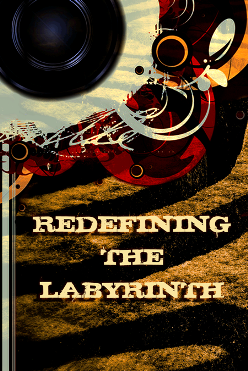Redefining the Labyrinth was a project I began while teaching at a local Memphis High School. With the current uproar about all that is wrong in the Memphis City Schools, I thought it would be interesting to post the work generated by four high school seniors, who are products of a system that everyone assumes is not capable of developing and producing productive students who can compete in this socioeconomic culture. I edited the book and contributed essays to give the book a shape and form, but it was the work of the students that allowed for the completion of this work. The artwork was completed by the student author DeVarius Fisher and the idea to make the name of each chapter an allusion to a song in Hip-Hop was a collaborative effort. I will post each student essay here on the blog. There is also a Question and Answer section in the book. If you would like to purchase a copy click here.
Track
3
Featured Artist: Michael R. Walker
Somethins Gotta Give
Poverty is thought to be the most prominent cause of crime in the black community. A high crime rate will drive businesses out of a neighborhood which eliminates the availability of goods, products, services and a source of jobs. With these elements out of the community, crime will likely become more personal. The crimes that are now being committed against individuals will cause the persons committing these crimes to be sentenced to longer terms in prison. In turn, the prison industrial complex will be expanding due to systemic and automatic incarceration of black Americans, and the poor decisions made by them.
The socioeconomic status of black Americans has improved, but in some respects the gap between Black and White Americans in education, occupation, and income remains a wide one (Black Americans, 2007). Historically, racism has been the root cause of most of our problems in the black community. Racism is also the main reason why Black Americans are not allowed to rise above their current economic status. Caucasians, who head most of our large businesses, do not hire black individuals. With these individuals not being hired, some resort to crime to obtain products that they do not have access to. To say that poverty causes crime implies crime is committed to gain access to basic human needs (food, shelter, clothing etc.) which the poor would otherwise not be able to purchase. Some black Americans, especially black males, who live in poverty, have not been taught to strive for excellence, which in turn means that these individuals will probably not rise above their current economic status. Unfortunately, these individuals will remain in poverty and continue to commit crimes to gain access to products they lack by necessity.
With the economic status of Black Americans being the way it is, crime in the community is constantly rising and most individuals are continuing to live in poverty. Since arrest for criminal behavior has usually been higher in the minority communities, does this mean that people of color because of their precarious status are more likely to commit crimes than others (Black Americans, pg, 86, Alphonso Pinkey)? With the rise of crime in the black community, those individuals committing the crimes are being sentenced to prison. After these individuals have completed their term in prison, they are released right back out into the same community from which they came. Most of those communities consist of poverty level individuals and families. In essence, these individuals are being released right back into the same poverty-induced environment. People of color are more likely to commit a crime because of their economic status for one main reason: To achieve or obtain what they do not have or what they want. African Americans who commit these crimes are more likely to get caught, because the areas where they commit the crime are patrolled more by police more than any other particular area. This results in increased capture of these individuals and a rise in the prison population.
Poverty is the most prominent cause of crime in the black community and the facts still remains that poverty level individuals commit these crimes because they are in need of products and goods they do not have. The prison industrial complex is continually expanding due to systemic issues affecting the black community, and the poor decisions made by black individuals to commit these acts of criminal behavior.
Note: Michael Walker attends Tennessee State University. This essay was written when he was a senior in high school. This essay was chosen as a national finalist in the NAACP ACT-SO Competition.


No comments:
Post a Comment